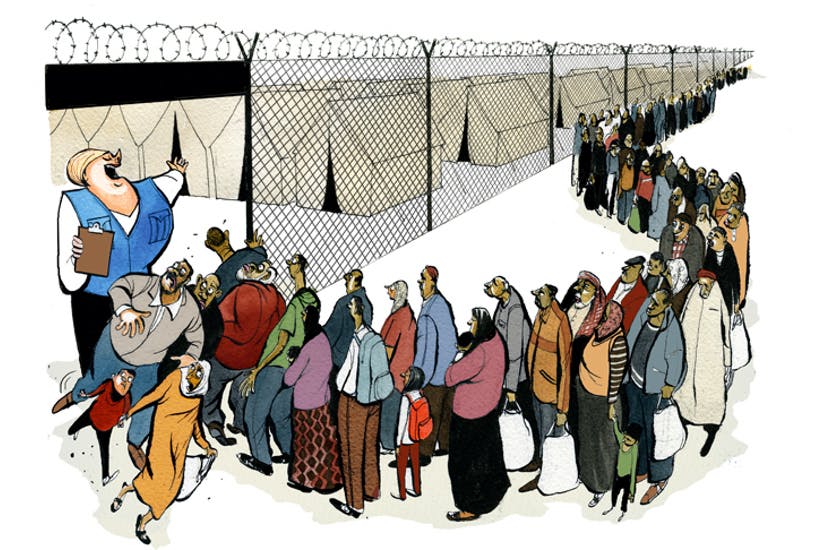Paul Collier is right to say that the refugee crisis will not be solved with tents and food alone. But context is everything, and aid remains vital.
In middle-income countries such as Jordan and Lebanon, getting refugees into jobs is essential. Businesses are part of the jigsaw. So is government legislation to ensure, for example, that refugees get work permits or can register as self-employed. So too are labour market interventions that generate incentives to get refugees working.
However, in fragile and impoverished states that lack functioning markets and governments, different forms of aid are required. Collier rightly highlights the principles of autonomy and integration, but job creation or community integration for those starving in Yemen or South Sudan won’t help save lives. Food and medicine have to be the top priorities here.
The important question is how to provide better aid for refugees in all crises and contexts.

Britain’s best politics newsletters
You get two free articles each week when you sign up to The Spectator’s emails.
Already a subscriber? Log in






Comments
Join the debate for just £1 a month
Be part of the conversation with other Spectator readers by getting your first three months for £3.
UNLOCK ACCESS Just £1 a monthAlready a subscriber? Log in